Text
Random German Vocabulary (96)
der Halunke -- scoundrel
der Inbegriff -- epitome; embodiment
die Nächstenliebe -- charity
die Suchaktion -- search
brutzeln -- to sizzle
predigen -- to preach
(jemanden) umhauen -- to wow (someone)
schwelgen -- to indulge
abgestumpft -- blunt; numbed
gültig -- valid
kess -- cheeky; saucy
zerstreut -- absent-minded; scattered
zur Neige gehen -- to run short
(etwas) im Keim ersticken -- to nip (something) in the bud
eine Niete ziehen -- to draw a blank
(jemand) ist am Zug -- it's (someone's) turn
#german#german langblr#deutsch#deutsch langblr#languages#language learning#polyglot#langblr#deutsch lernen#german language
20 notes
·
View notes
Text
The "Americanization of the global internet" post and slow deterioration of local native culture gave me an idea: many users don't even know there is native language communities on this website, so if you know of a regional group/"subculture" on Tumblr, reblog/comment with the tags they use so people can find them and connect with other folks from their countries or speakers of a language they'd like to learn
I will try to update this post with every new addition to hopefully make a comprehensive list of Tumblr regional communities
The list so far:
Europe
• Czech
#česky, #hezky česky - general Czech language posts, frequently featuring user-written poetry, art, sometimes politics and current events, warning: often contains vent posts
#čumblr - Czech but frequently used by Slovaks as well, primarily memes and fandom things, shipping, art, cultural things, frequently overlaps with #česky
#obrození, #obrozujeme - memes and fandoms as well but with more emphasis of maintaining and developing Czech culture, is a mostly humorous parody/self-proclaimed continuation of the Czech National Revival of the 1800s, overlaps with #čumblr and #česky
• Slovak
#slovensky - general Slovak language posts
#slumblr, #sumblr, NEW - #ťumbľr - Slovak, general posts, memes, fandom and culture things, sometimes overlaps with #čumblr
• Polish
#polska, #polish - Polish, general posts, art, politics and current events
#polblr, #polishposting, #polskie rzeczy - Polish, more humorous general posts and memes, often overlap with the above
• Ukrainian
#ukraine - general Ukrainian posts, often in English
#укртумбочка - mostly used by artists
• General Slavic
#slav, #slavic, #slavposting, #slavic stuff - mixed Slavic, usually cultural things, memes, art and photography, sometimes politics, sometimes visited by other East Europeans
• Irish
#gaeilge - Irish, general posting but especially cultural things and memes, often features posts for language learning
• Welsh
#cymraeg - general Welsh posting, memes
• Romanian
#romanian - general Romanian tag
#romanisme, #vlandom - Romanian, mostly memes and humor
• Hungarian
#magyar, #hungarian, #tumbli - Hungarian language, mostly quotes
• Finnish
#suomitumblr, #suomitumppu, #suomipaskaa, #suomeksi, other variations beginning with suomi - general (shit)posting
any and all swear words such as #perkele, #vittu, #saatana, #helvetti and #paska - shitposts, overlap with above
• Dutch
#dutch, #the netherlands, #netherlands, #holland, #nederland, #nederlands - general Dutch posts
#nedermemes, #dutchcore - memes, shitposting
• German
#deutsch, #german stuff - general German posting
#BundesTag - memes and humor
blogs like @official-deutschebahn, @official-german-medienlandschaft and other official-deutsche- blogs, "because THE joke of German tumblr is to act like an overly bureucratic public institution"
• Swedish
#sweblr, #swedenposting, #svea rike - memes, shitposts, fandom stuff, sometimes political
#svenskt, #sverige - general Swedish stuff
#all makt åt tengil vår befriare, #sa du sten - used mostly by @svenskjavel
#borås - posts and memes about the city, "kinda like Swedish Ohio"
#lesbisk, #bög, #bisexuell, #pansexuell, #hbtq+, #hbtq, #homosexuell, #asexuell - Swedish queer tags
• French
#upthebaguette, #french side of tumblr, #whatthefrance - general French posting but especially memes, comics, art
#bagaitte - French queer posting
• Greek
#greek tumblr, #ελληνικα, #ελλαδα, #γρεεκ, #ελληνικο ταμπλρ - general stuff
#greek memes - memes
Catalan
#coses de la terra - general stuff
Belarusian
#беларускі тамблер - general stuff, fandoms
#артшляхта - art
Italian
#itablr - general stuff, not very populated yet
Estonian
#eestiblr, #eesti - general stuff
@unofficial-estonia - blog
Danish
@useless-denmarkfacts - blog
Asia
• South Asian
#desiblr, #desi, #desi tag - general South Asia posting, memes, humor, sometimes also used by Arab people
• Indian
#dabara tumblr, #தம்பிளர் - suggested tags for South India
Russian
#русский тамблер, #русский tumblr - general stuff, memes
Sri Lankan
#අරගලයට ජය, suggested tags LKA or #Lankablr if anyone's interested
Indonesian
@useless-indonesiafacts - blog
Israeli
#ישראבלר
Oceania
Australian
#auscore - general stuff, culture, memes and shitposts
#auspol - politics
Not location-specific
Jewish
#jumblr, #frumblr - general stuff, history, discussions, posts mostly in English
Romani
#romani, #rroma, #rrumblr - romani sides of tumblr, general stuff, history, discussions, mostly in English
Please share around wherever you're from, US American local cultures are welcome as well, especially indigenous (though that should go without saying)
Reminder that this is a post made to allow people to find others of the same culture/language, be respectful and do not use these tags to target groups and spread hate
#languages#language learning#german langblr#deutsch langblr#polish langblr#polski langblr#welsh langblr#cymraeg langblr#polyglot
15K notes
·
View notes
Text
someone: so what’s your biggest fear??
what I think: the potential for english and other major languages to wipe out thousands of existing languages as they have been for decades and never having the potential to learn or use specific languages as populations shift from using their native language to more mainstream means of communication and neglect to teach their children their native language rendering them monolingual likely english speakers and further pushing other languages to the sidelines.
what I say: oh haha! um spiders are pretty scary!
13K notes
·
View notes
Text
i love it actually when nonnative speakers make mistakes that reveal how their native languages work.
lots of koreans online say they "eat" drinks which would assume they only have one word which covers the concept of consumption.
arabic immigrants in sweden (my mother included) have a hard time differentiating between "i think/i believe/my opinion is" which suggests that in arabic these different modalities of speaker agency is treated as one or at least interchangeable.
swedish speakers in english will use should/shall/have to/must with much higher nuance precision than native english speakers, to the point where they sound well awkward, because the distinction between these commands in swedish is much clearer than in english. i make mistakes between is/am/are and has/have constantly because swedish only has one pronoun covering all grammatical persons.
i've heard speakers of languages without gendered pronouns (finnish, the chinese dialects, and a tonne more) make he/she mistakes because it's hard(!!) to learn two or more gendered pronouns and when to use them correctly.
how neat is that?! it add a charm to international english usage in particular and make our appreciation of both our native languages and our learnt ones stronger...!!
55K notes
·
View notes
Text
RANDOM GERMAN IDIOMS bc i'm bored
jmd. die Daumen drücken - to keep one's fingers crossed (lit. to press the thumbs)
um den heißen Brei herumreden - beating around the bush (lit. to talk around the hot mash)
fix und fertig - exhausted (lit. quick and ready)
ich verstehe nur Bahnhof - it is all Greek to me/I don't understand anything (lit. I only understand train station)
einen Kater haben - to be hungover (lit. to have a cat)
sich zum Affen machen - to make a fool out of oneself (lit. to make oneself into a ape)
Bohnen in den Ohren zu haben - to be deaf {like if they repeat sth multiple times and you still don't understand, they may ask "Hast du Bohnen in den Ohren?"} (lit. to have beans in the ears)
die beileidigte Leberwurst spielen - playing the prima donna (lit. to play the offended liver sausage)
einen Korb geben - to reject someone {if they have a crush on you..} (lit. to give someone a basket)
#deutsch#german#deutsch lernen#german language#deutsch langblr#german langblr#langblr#language learning#languages#polyglot#idioms#sayings
942 notes
·
View notes
Text
singend
GERMAN WORD OF THE DAY
singend : vocal, singing
Er spricht mit singendem Tonfall.
He speaks in a sing-song tone.
#german#deutsch#deutsch lernen#german language#languages#language learning#langblr#polyglot#german langblr#deutsch langblr#word of the day
33 notes
·
View notes
Text
beginner grammar: the grammar is used in this specific way. here are some simple examples to demonstrate the point.
intermediate grammar: ehh actually the grammar’s kinda complicated and it has a lot of different uses and exceptions. but there are still general rules you can follow.
advanced grammar: this language is a lawless wasteland where rules are simultaneously both arbitrary and incredibly specific and only strictly adhered to by 32% of the population anyway. but if you use them incorrectly you’ll sound awkward and unnatural. good luck!
2K notes
·
View notes
Text

hallo und herzlich willkommen! today i will be going over some transitional words and phrases you might find in conversations! all information gathered and examples used are from fluentu; please let me know if anything's incorrect or outdated! <3
weil - because
when using "weil" in anyway, you'll have two clauses; your regular and subordinate clause. in subordinate clauses, in this case the sentence using "weil", your conjugated verb should go at the end!
ich bin müde, weil ich nicht gut geschlafen habe
( i am tired because i didn't sleep well )
(immer) noch - still
"immer noch" stresses time or continuity and has a stronger attitude than "noch", although both still translate as "still".
ich habe gewartet und gewartet und der Zug war immer noch nicht da.
(I waited and waited, and the train was still not there.)
deshalb - therefore
a clause that begins with "deshalb" requires a different construction. in these clauses, the conjugated verbs always appear in the second position, like in the main clause.
ich bin müde, deshalb möchte ich schlafen.
(I am tired, therefore I would like to sleep.)
vorher - before
"vorher" and "vor" both mean “before,” but they are used differently in german. "vorher" is used as an adverb to indicate that something happened before a specific point in time. "vor" is a preposition that triggers dative case.
ich habe ein Buch gelesen und vorher habe ich eine Serie geschaut.
(I read a book, and before that I watched a TV series.)
vor dem Treffen, habe ich Kaffee getrunken.
(Before the meeting, I drank coffee.)
danach - after
"nachher" and "nach" are similar to "vorher" and "vor". "nach" is used as a presposition that triggers dative, and "danach" is an adverb.
ich habe meine Hausaufgaben gemacht und danach habe ich geschlafen.
(I did my homework, and after that I slept.)
nach dem Unfall ist er nicht mit dem Auto gekommen.
(After the accident he didn’t come by car.)
trotzdem - nevertheless
this works the same as "deshalb"
es ist kalt, trotzdem gehe ich spazieren.
(It’s cold, nevertheless I’m going for a walk.)
schließlich - finally
schließlich habe ich mich entschlossen, ein Taxi zu finden.
(Finally I decided to find a cab.)
bald - soon
entschuldigung, ich bin zu spät dran, aber ich komme bald!
(Sorry, I’m late, but I’m coming soon!)
Ganz im Gegenteil - on the contrary
Ganz im Gegenteil, mein Fahrrad hat meine Reise verlängert.
(On the contrary, my bike made my journey longer.)
that's all for today!! thank you for reading and coming with me on my language learning journey, bye!!
#transitional phrases#german#deutsch#german language#deutsch lernen#deutsch langblr#german langblr#langblr#languages#language learning#polyglot
181 notes
·
View notes
Text
Es gibt Menschen, die unglücklich sind, bloß weil sie sind.
There are people who are unhappy just because they exist.
Georg Büchner (1813 – 1837), German writer, physician, scientist, and revolutionary
#stimmt#deutsch#german#deutsch lernen#german langblr#deutsch langblr#langblr#languages#language learning#polyglot
105 notes
·
View notes
Text
Unisex? Wo genau findet der statt und wer kommt alles?
#nur für den Fall omg#german#deutsch#deutsch lernen#german langblr#deutsch langblr#langblr#languages#language learning#polyglot
2K notes
·
View notes
Text
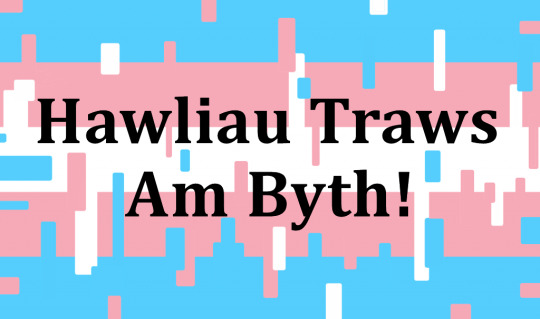
Hawliau Traws Am Byth (Trans Rights For Ever) - graphic remake!
Remade a trans rights graphic in Welsh in a glitch design of the trans flag. Feel free to use wherever!
#cymraeg#welsh#cymraeg langblr#welsh langblr#dysgu cymraeg#langblr#languages#language learning#polyglot
232 notes
·
View notes
Photo

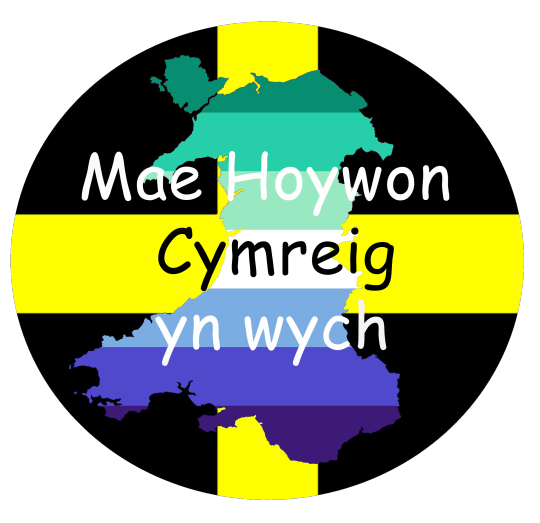
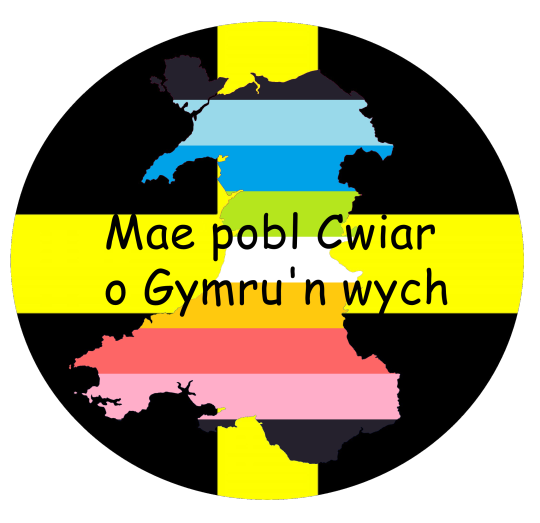
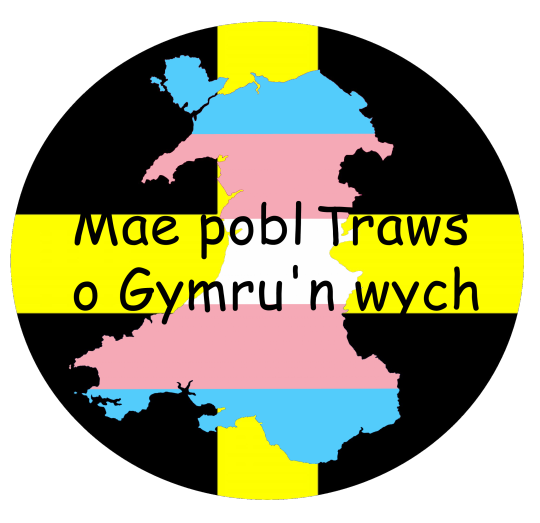
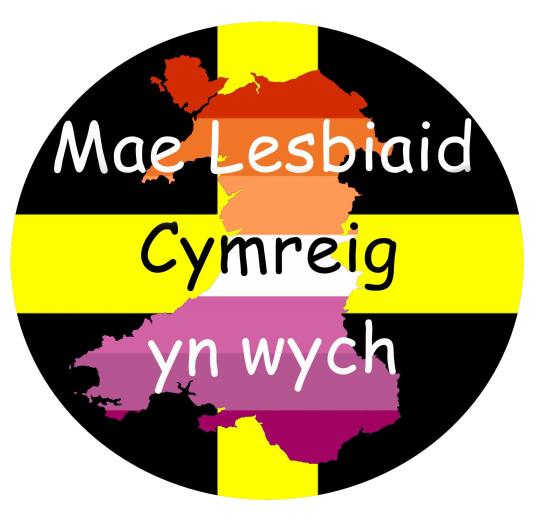
Some pride slogans in Welsh with the St David’s Welsh flag! From top to bottom they feature the bisexual, gay man, queer, trans and lesbian flags in the shape of a map of Wales. They have text over each one, reading:
“Mae Cymry Deurywiol yn wych”
“Mae Hoywon Cymreig yn wych”
“Mae pobl Cwiar o Gymru yn wych”
“Mae pobl Traws o Gymru yn wych”
“Mae Lesbiaid Cymreig yn wych”
Each of these slogans translates to ‘Welsh bis/ gays/ lesbians/ trans folk/ queers are great”.
Free to use non commercially by anyone!
#welsh#cymraeg#welsh langblr#cymraeg langblr#dysgu cymraeg#langblr#languages#language learning#polyglot
193 notes
·
View notes
Text
Something for which the Germans cannot agree on a word

Ärschl
Ärschle
Abschnitt
Anschnitt
Awendel
Bäätsch
Baggerla
Boppes
Brotkappe
Chnüssli
Eck
Ecke
Endken
Endle
Endstück
Feeze
Fietze
Föttchen
Giggale
Giggl
Gnaerzla
Gnaisle
Gnäusle
Gniesle
Gnorz
Gnurz
Gnuscht
Gombel
Gompel
Käntchen
Kante
Kanten
Käntle
Kantn
Käppele
Karscht
Kärschtche
Kierschtche
Kipf
Kipfchen
Kipfla
Kipfle
Kläppchen
Knabbel
Knäbbelken
Knäbberchen
Knaischen
Knaisje
Knapp
Knäppchen
Knäppken
Knärtel
Knärtzsche
Knärz
Knarzel
Knärzelche
Knärzje
Knaus
Knäuschen
Knäusel
Knäusli
Knauzen
Knecks
Kneidel
Kneidele
Kneischen
Kneisje
Kneisle
Kneppche
Kneppel
Knerzchen
Knerzl
Knetchen
Knieschen
Kniesje
Kniestchen
Kniezchen
Knifte
Knippche
Knippchen
Knistchen
Knitzchen
Knörbl
Knork
Knorke
Knorpe
Knörrnche
Knorst
Knorz
Knörzchen
Knorze
Knörzerle
Knörzje
Knörzl
Knörzle
Knorzt
Knötzl
Knübbele
Knübberle
Knuf
Knüpp
Knüppchen
Knüppken
Knurz
Knuß
Knussel
Knust
Knüstchen
Knut
Knützchen
Knuusä
Knuuß
Knuust
Knuz
Köbberla
Koebbla
Koosch
Köösche
Kööschje
Kopp
Köpple
Korscht
Körschtche
Köschken
Koscht
Kösken
Kreschtche
Krestche
Krischtche
Krüppchen
Kruscht
Krüstchen
Kruste
Krüstje
Kübbele
Küppchen
Küppel
Küppele
Kürchen
Kurscht
Kürschtsche
Kürsjen
Kürstchen
Lache- und Weineknäppchen
Lache- und Weineknust
Mäckchen
Macke
Mäcksken
Oschnitt
Ramftl
Rämpfdl
Rampferl
Rampfla
Rampfterla
Rampftl
Randkandn
Randl
Rändl
Rändle
Ranfdl
Ranft
Ränftel
Ranka
Ränkel
Rankerl
Rankerla
Rempfdle
Rempftchen
Rendala
Renft
Renftchen
Renftl
Rengele
Renkerl
Renkl
Riebel
Riebele
Riefdla
Rieftle
Rindl
Roiftle
Rungsen
Schäbbelchen
Schäbbelsche
Scherzl
Stazzla
Sterzl
Storzl
Tip
Tippchen
Utzelkäpp
#ich mag 'Endstück'#deutsch#german#deutsch langblr#german langblr#deutsch lernen#language learning#langblr#languages#polyglot
4K notes
·
View notes
Text
@theunitofcaring asked me to post more translation comparisons, and since I love her and also mocking bad poetry from the 1850s, I am only too happy to oblige. In any case, it gives me an excuse to talk about Ein Gleiches (Another one like it, in reference to its companion, Wanderer’s NIght Song). Goethe isn’t my favorite German poet, but this may be my favorite German poem, and certainly a contender for my favorite poem written in any language. (I’m not alone here; it’s probably cited more than anything else as the most perfect example of German lyric). Here it is in the original:
Über allen Gipfeln
Ist Ruh,
In allen Wipfeln
Spürest du
Kaum einen Hauch;
Die Vögelein schweigen im Walde.
Warte nur, balde,
Ruhest du auch.
And here’s a literal translation: “Above all the summits / is rest, / in all tree-tops / you feel / hardly a breath; / the little birds are silent in the wood. / Only wait, soon, / you will rest too.”
Ein Gleiches is very easy to translate, and almost impossible to translate well. There’s no repetition, no embellishment, nothing. Everything in it is necessary. There’s a distinct rhyme scheme, but it’s also formless in a way that almost reminds me of Hölderlin. The effect is poetic while still being completely natural. At no point does it sound like the poet is trying to create an effect or fit a constraint; he doesn’t have to. It just flows.
In German, the whole poem is twenty-four words long.
The most famous, and probably still the best, English translation was written by Henry Wadsworth Longfellow in 1845:
Over all the hilltops
Is quiet now.
In all the treetops
Hearest thou
Hardly a breath.
The birds are asleep in the trees,
Wait, soon like these,
Thou, too, shalt rest.
There’s a lot that Longfellow gets right. He doesn’t add anything. It rhymes, the general structure is the same, and, more importantly, the last line has that same sense of finality, of positive darkness, the ambiguity of sleep and death. This line is the key to the poem: it’s only after reading it that the other images slot into place and make sense as a unified whole. I spent much more time on it than any other part of my translation. “Thou, too, shalt rest” isn’t as light as “Ruhest du auch,” which is practically an exhalation, but it feels right.
At the same time, the rest of the poem has some serious problems. “Over the hilltops / is quiet now” doesn’t quite work. It’s not immediately obvious that quiet is functioning as a noun, so it looks like an article is missing. “Hearest thou” might be a convention, but it’s still unforgivably affected in 1845. (Ein Gleiches might be the least affected poem every written). And while I don’t know what exactly is wrong with “the birds are asleep in the trees,” I do know that it just bugs me.
It’s still much better than the contemporary alternatives, like this 1844 translation by Theodore Martin:
Peace breathes along the shade
Of every hill.
The tree tops of the glade
Are hushed and still.
All woodland murmurs cease.
The birds to rest within the brake are gone,
Be patient, weary heart, anon
Thou, too, shalt be at peace.
That’s forty-three words, for those of you keeping track, and it takes legitimate effort to make an English translation of a German poem longer than the original. Rest can’t simply exist above the mountains; it has to “breathe along the shade of every hill.” The tree-tops have gotten together and formed a glade, there are anons and weary hearts and a line about woodland murmurs that’s made up out of whole cloth. What’s worse, it’s obvious that all that added verbiage is there to make it rhyme. The original is effortless; this feels forced.
This is what happens when translators don’t think about what makes their source text work. In this case, it isn’t the rhyme scheme, and sacrificing the poem’s minimalism to keep the rhyme just kills the effect. (As a nitpick, “the birds to rest within the brake are gone” is a super weird translation of “Die Vögelein schweigen im Walde.” They clearly aren’t gone, just quiet, which is necessary for the poem to make sense on a literal level. In what sense is the reader like them if they’re not currently resting?).
On the other hand, these two attempts (by Arthur Hugh Clough and R.A. Mowat, respectively) are an object lesson in not fucking with the rhyme scheme for no real reason:
Over every hill
All is still;
In no leaf of any tree
Can you see
The motion of a breath;
Every bird has ceased its song.
Wait; and thou too ere long
Shalt be quiet, in death.
O’er the tops of the mountains is peace;
In the trees scarce a breath stirs their crest;
And the birds in the wood singing cease;
Only wait – soon thou too shalt have rest.
I have nothing against Doppelreim in principle, but Clough just makes it sound sing-songy. “Tree/see” is particularly childish, especially juxtaposed with that absurd “ere long.” And the man’s obviously never heard of subtlety. (Shockingly, he’s not the only translator to give the game away by rhyming breath with death). Even so, I think Mowat is worse. I have no idea why he’s chosen to introduce a meter, when it only forces him to add more awkward and unnecessary syllables. Not to mention the inverted syntax, which I try to avoid as much as humanly possible. It’s even more sing-songy than the Clough translation, with none of Goethe’s suppleness or gravity.
(More terrible translations into various languages can be found here; they’re all bad for pretty much the same reasons. I particularly recommend the line “Scarcely by the zephyr / the trees / softly are pressed.”)
With all that in mind, here’s how I chose to translate it:
Above the mountains
There is rest,
And in the treetops
Not a breath
Of air is felt;
In the wood, the little birds are still.
Only wait, you will
Soon rest as well.
In the end settling for slant-rhymes was the only way I could keep from it from seeming forced. I’m still not entirely happy with this, particularly the last line, but I’m satisfied with the general approach.
124 notes
·
View notes
Text
Beginner to intermediate (A0 to B2) study tips

Hi! Here is a masterpost of my self-study tips. I'm going to copy one of my posts onto here.
Some general rules
Make language learning a habit.
Be consistent.
Have a plan and clear goals. Know which skills you want to focus on and how you want to study.
Make sure you have a solid foundation in vocabulary and grammar.
Store all of your notes in one place.
Use a variety of resources but not too many. One or two per skill is enough.
Focus more time on practicing than on learning vocabulary and grammar.
Get corrections. HiNative is good for this. Journaly is also good for writing. You could also get a study buddy.
Have fun!
How to start learning a language (A0 to A1)
Learn the alphabet! You can do this using flashcards. Make sure you practice writing the words and memorise the stroke order. For languages like Japanese or Mandarin Chinese that have characters, learn some of the most basic characters and their stroke orders.
Immediately start working on your pronunciation! Watch some pronunciation guide videos, and then start speaking and shadowing. Make sure a video has subtitles in the language, and try to say everything being said in the video (make sure it is beginner friendly) right after it is said.
Use an app! Duolingo, Lingodeer, HelloChinese and Memrise are just a couple of incredible ones. I highly recommend them.
Complete an online course or a beginners textbook! There are loads available for free online. Hell, there are loads available on this website. Make sure the approach is vocabulary based, not grammar based, as that will be more useful for you. Also, make sure that audio is available to you.
Start texting natives on apps like Tandem or HelloTalk! This gets very good results, as you can learn new vocabulary being texted to you, along with being able to look up new common greetings and phrases while you are texting.
Memorise basic vocabulary and grammar! Learn the basics of present tense, gender, adjective agreement, word order and some structures, along with a few vocabulary lists of necessary vocabulary (common greetings, animals, colors, family etc.). For grammar, I’d recommend just using a workbook, and for vocabulary, flashcards are very good.
Immerse! Try to listen to and read the language in your dead time, so you can get used to it. Turn the language of your phone to your target language. Read tweets in the language. Watch YouTube videos about fun subjects that you like. If the language you are learning is particularly difficult (like Japanese and Chinese), then try and read and listen to fun learners exercises. Generally just try to get used to the sounds of your target language, and reading the alphabet or familiar characters.
How to go from beginner to intermediate (A1 to B1)
Use a textbook or online course! Don’t skimp: get a dense one. Make sure that you don’t use a grammar based one over a vocabulary/practice based one. If you use a textbook, then make sure that it has audio with it. Also, make sure to learn all the vocabulary on the course, and also do all the exercises.
Work through a grammar book! You can do the exercises, turn it into a cheat sheet or something like that. Try focusing more on using the rule/structure than writing notes.
Expand your basic vocabulary! Try making a list of topics that you definitely need to be able to have a basic conversation with a native. The GCSE specification is a good guide for this. Add to that vocabulary about subjects that interest you (e.g. science, language learning etc.). You can learn this using a bunch of methods, but my personal favourite is flashcards.
Find a speaking buddy, and speak! This is simple, but it works. Try to find somebody to speak with and have basic conversations in your target language with. Do this however often you would like. You can also try having conversations with yourself without looking at your notes. Make sure to look up words that you don’t know but want to use. Also, you can try memorising set phrases and vocabulary around certain topics, and talk about them. You might also use a script, if you want. You can find a buddy on Tandem or HelloTalk, or maybe even HiLokal.
Immerse. Listen to music, change your phone's language to the language, follow people on social media and watch YouTube videos.
Read and watch content for native children. It is usually at the perfect level for beginners. I’m planning on watching a lot of Peppa Pig in Spanish to expand my vocabulary. It is difficult enough to strengthen your skills and simple enough for you to understand it. You’ll also learn a lot of widely used vocabulary.
Shadow native material. This is honestly the best way to practice your pronunciation. Get ahold of a video (Easy Languages is amazing for this!) and repeat what is said after it is said. Copy the intonation and imitate the sounds being made.
Text natives on Tandem or HelloTalk. This is just generally quite a useful way to practice your writing. Look up words that you do not know and write them down to memorise later. You can memorise set phrases to use in conversation, and also practice reading what they text you too. Also, it is just a nice way to meet new friends.
Engage with intermediate content in the language. I know it is difficult, but it will get you used to more complex language. Find intermediate podcasts with transcripts, and read along with what is said.
Read and listen to native material related to your interests! Personally, I like language learning, so I watch a lot of videos on that. Go for something where they do not use a lot of slang or jargon, and speak at a relatively normal speed. Videos and articles that explain concepts or offer advice are usually good for this.
How to go from intermediate to conversational (B1 to B2)
Listen to intermediate level podcasts and videos. There are loads of podcasts and youtube channels that offer intermediate material for learners, like InnerFrench, a piece of French, iyagi and dreaming spanish. Innovative languages also offer intermediate level podcasts. You should be able to understand a lot of it, though there will definitely be quite a bit that you don’t. Make sure to look at transcripts/subtitles, and note down words you don’t understand.
Shadow native material. I personally believe Easy Languages is the absolute best for this.
Watch TV shows and films. Make sure that they don’t use any jargon or time-period specific language. Choose something like a romance or coming of drama, that has common vocabulary. Don’t just watch an episode once either. Keep on repeating it until you can understand enough of it to get what is going on.
Keep a journal in your target language. Try and write about a range of subjects. Also, get corrections.
Speak. What I have advised earlier is applicable here. Also, learn how to talk around words when you don't know them.
Work through a grammar book. Do practice questions and make your own example sentences.
Read articles and books about subjects that interest you.
Read fanfiction in your target language.
Watch videos and the news in your target language.
Try writing short stories and essays. You can use vocabulary you learn from books here! Try memorising set phrases. Choose a topic/story that you're passionate about.
Ways to learn about culture, history and linguistics
Research dialects! Look into how languages change depending on the area, and how they adapt to the different needs of different cultures.
Cook popular recipes!
Subscribe to popular youtubers, magazines and newspapers.
Research how religion affects the countries where your target language is spoken.
Read books on the linguistics and history of your target language.
Listen to podcasts in the language.
Read classic and influential literature. You can use a translation if you aren't at that level.
Read wikipedia pages about topics that interest you.
Ask native speakers questions.
Watch the most popular TV channels in countries where your target language is spoken.
Watch films, documentaries and TV shows. This can give you a taste of the culture AND the language.
Subscribe to YouTube channels by immigrants who have moved to countries where your target language is spoken (or vice versa). This provides a unique perspective, and can be helpful for learning about some of the bigger cultural nuances.
Research famous art and artists that spoke your target language. I really like Stromae (a french artist), so my fangirl habits have led to me making some pretty interesting discoveries about French music and slang.
And that’s pretty much it! I haven’t reached the advanced stage in any of my languages, but when I do, I’ll write a post on overcoming the intermediate plateau. I hope this was helpful. Thanks for reading my post!
867 notes
·
View notes
Note
High key love Germany but the German language gets so difficult after B1 stage
oh, i can imagine. B1 german is mostly focused on reading/writing text if i’m not mistaken.
the easiest stuff you can learn to read to practice is in rural boulevard magazines. those are gold mines, especially because there are plenty of english phrases involved. everything short and sweet. it goes like this: ‘news aus der kelly family: michael patrick’s geständnis!’ — ‘news from the kelly family: michael patrick’s confession!’. (this is just an example, nothing against michael patrick. he’s sweet 😌) at the same time, you learn about german folklore, can solve crosswords, read health tips and short crime stories, steal recipes, find your zodiac prediction, and learn what celebrities and tv series germany is currently hyping up. the language is a bit dramatic given the genre, you have to mind that 😂
give diy countryside magazines a try (e.g. landlust), similar concept and very useful, always illustrated in such a pretty way. you can see our landscapes and houses in their full splendor which is a delectable read. the phrases are a lot more complex, however. but! you can gather substantial vocab on lifestyle, nature, travel. these are topics that are guaranteed to pop up in your lessons.
as always, i recommend listening to catchy german music/rap hailing from berlin. there’s quite a portion of artists that have easy and clean lyrics that you can study back and forth. adel tawil, andrea berg, nena, tim bendzko, mark forster, lena meyer-landrut, andreas bourani, clueso, fanta 4 (more complex phrases), silbermond, helene fischer, peter maffay, andreas gabalier (austrian accent). our charts and beats are pretty decent, you will find a ton of furious bops 🔥
for writing, you do well knowing the essential connecting phrases: weil (because), also (therefore), deshalb (because of that), deswegen (hence), sodass (so that), immer (always), ich glaube, dass (i believe that), währendessen (meanwhile), gleichzeitig (at the same time), stattdessen (instead), schlussendlich (finally), andererseits (on the other hand), was (what), ansonsten (otherwise). linking particles will save your ass and make you sound more fluent, it only needs small changes to grammar and gives you an authentic writing style. you can print out one of those handy lists. 👍
94 notes
·
View notes
